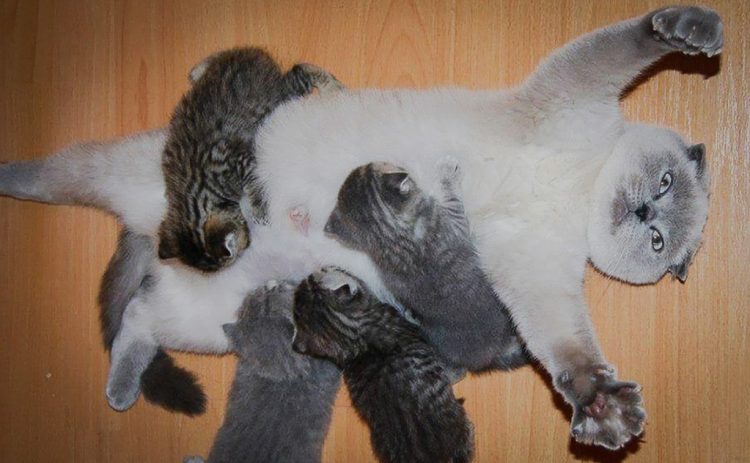I can’t really add much more than what I say in the title so this is going to be a short post. But despite that I think the title is a very interesting one. It never occurred to me that a domestic cat’s milk is so much more full of protein and fats than human milk. Why should it be like that? This seems to be an evolutionary development to improve the prospects of survival of newborn kittens who are obviously highly vulnerable in the very early stages of their lives.

On this milk, kittens grow rapidly and their mother uses up her body reserves to produce it. A study showed that mothers lose an average of 5.7 grams per day when lactating. In general kittens double their birth weight in a week, triple it in two weeks and in three weeks they are four times their birth weight. It is unsurprising when you consider how much protein and fat is in the milk!
The source of the information comes from a book (or some other published work) called, The consequences of differences in litter size for the nursing cat and her kittens written by JM Deag, CE Lawrence and a Manning – published in 1987. The work is referenced in the excellent book Wild Cats of the World by Mel Sunquist and Fiona Sunquist.
I’ll add a little bit more information which may interest you. When kittens are born they are wrapped in a transparent membrane. Their mother removes it and eats it. She then licks her kittens’ mouths and noses to clear away any mucus which might impede their breathing. She then licks each kitten dry.
Another interesting piece of cat trivia is that kittens, immediately after they are delivered and enter the world, have the ability to survive without oxygen within their birth sack for a short while. This ability has evolved because their mother may have to attend to a litter mate and not to the kitten confined to a sack. In short they have to wait in turn and during that time they can survive without oxygen. Scientists have speculated that this attribute is a reason why kittens are reputed to be difficult to drown.

You may know that kittens are born with their eyes closed, their ears are flattened and they have a poorly developed sense of hearing. Ironically, a cat’s sense of hearing becomes their most impressive sense and relatively better than their sense of smell and their eyesight when they become adults.
As quickly as within one hour after birth each kitten finds a nipple and begins to nurse and by the third day all members of the litter have established themselves as the “owners” of a particular teat. This avoids fighting for one and also it ensures that there is a functioning nipple for each of the litter mates.
SOME MORE ON MOTHERING:

